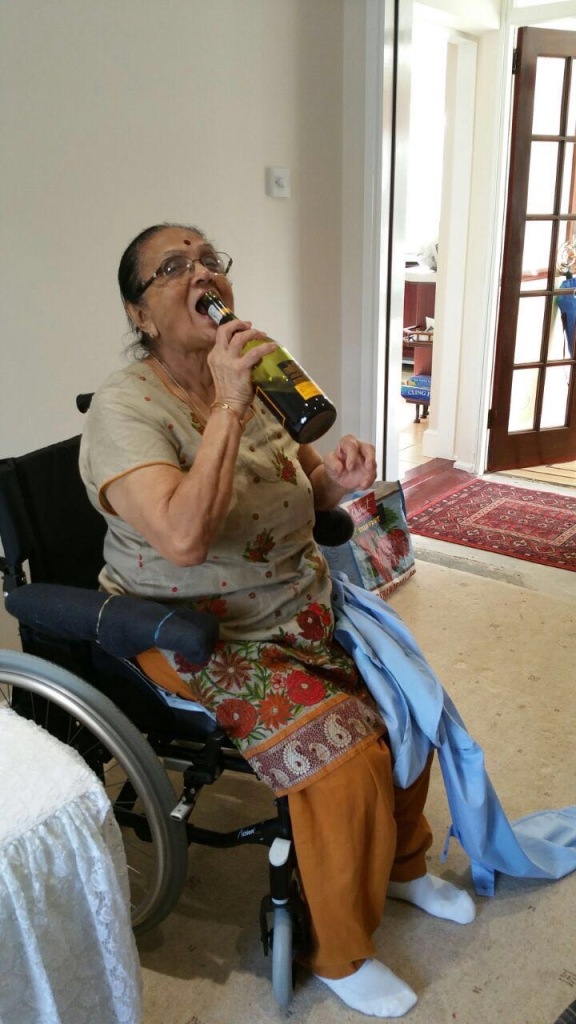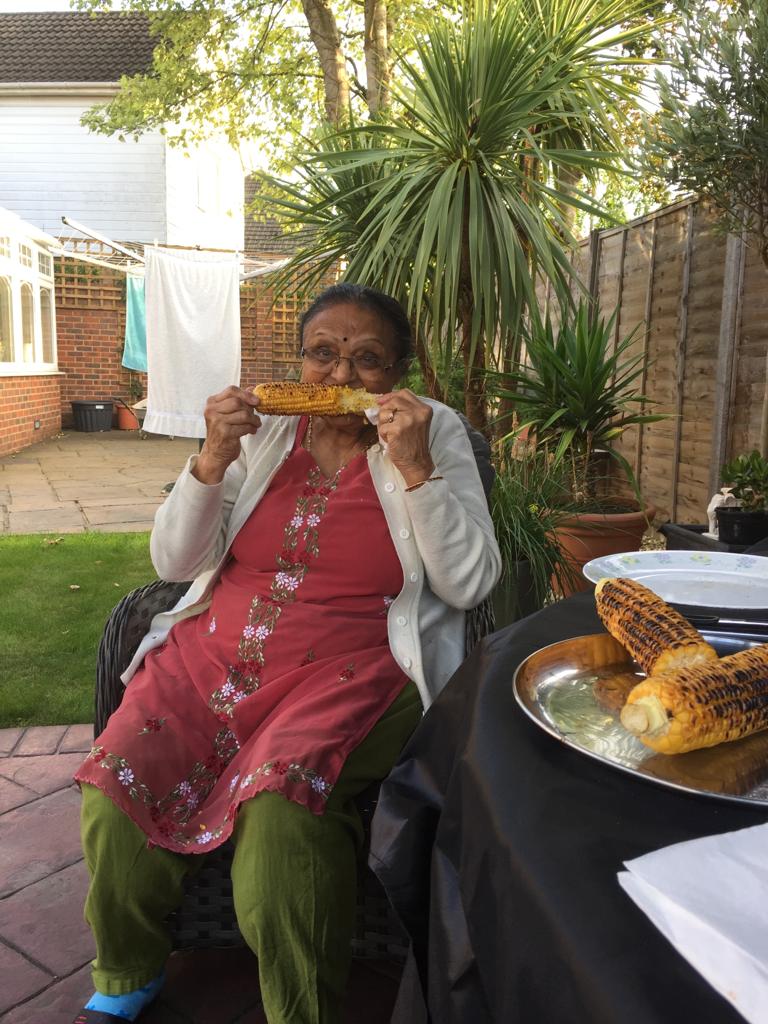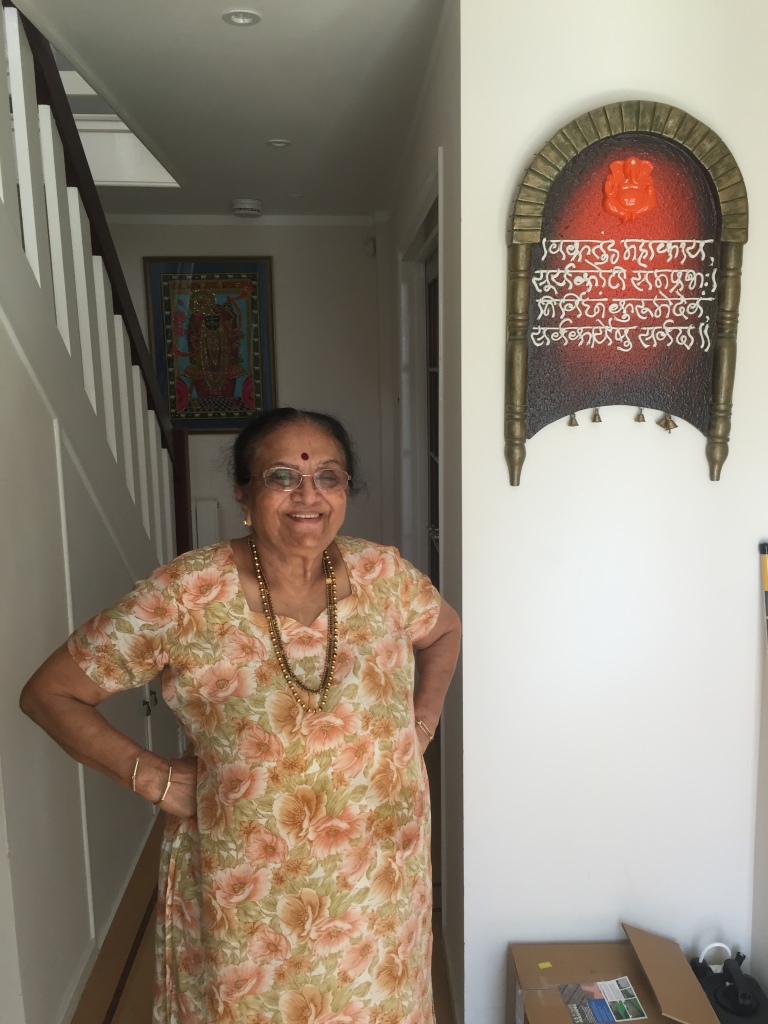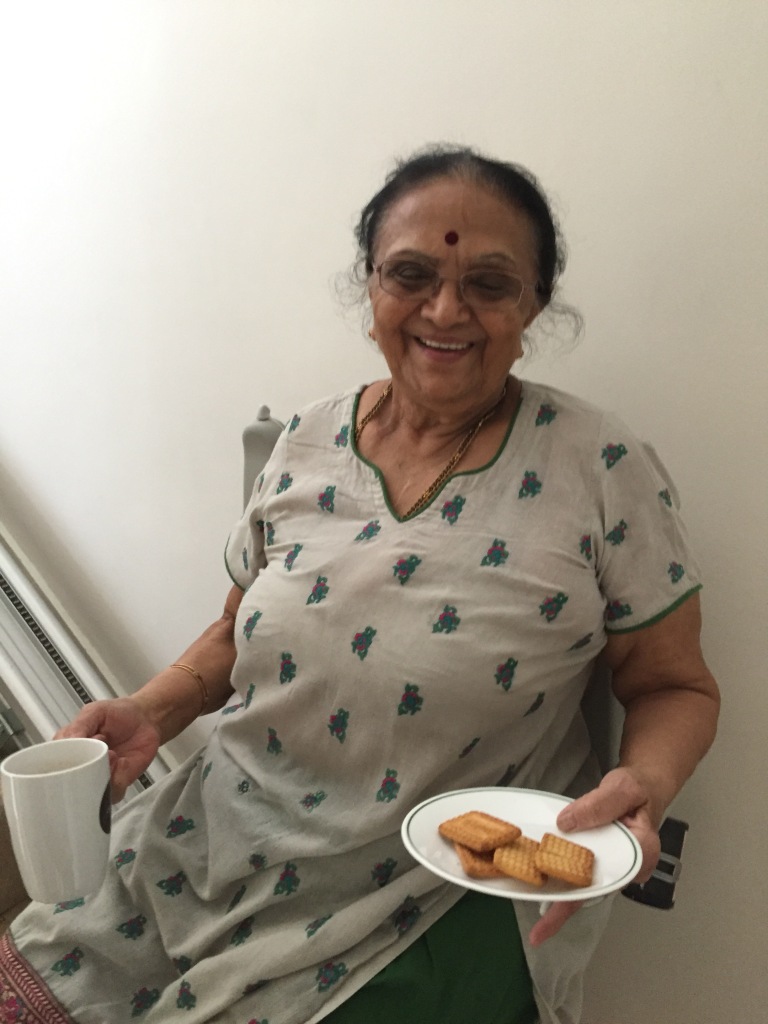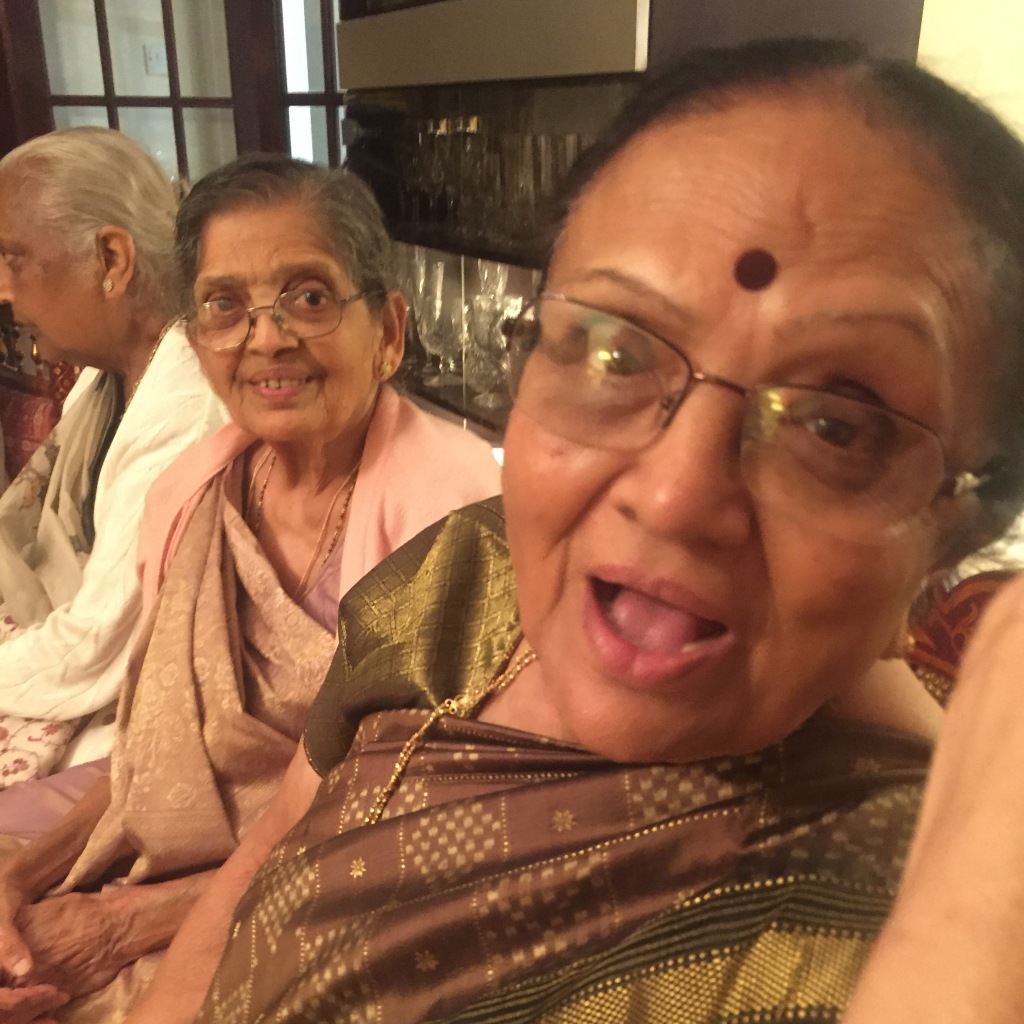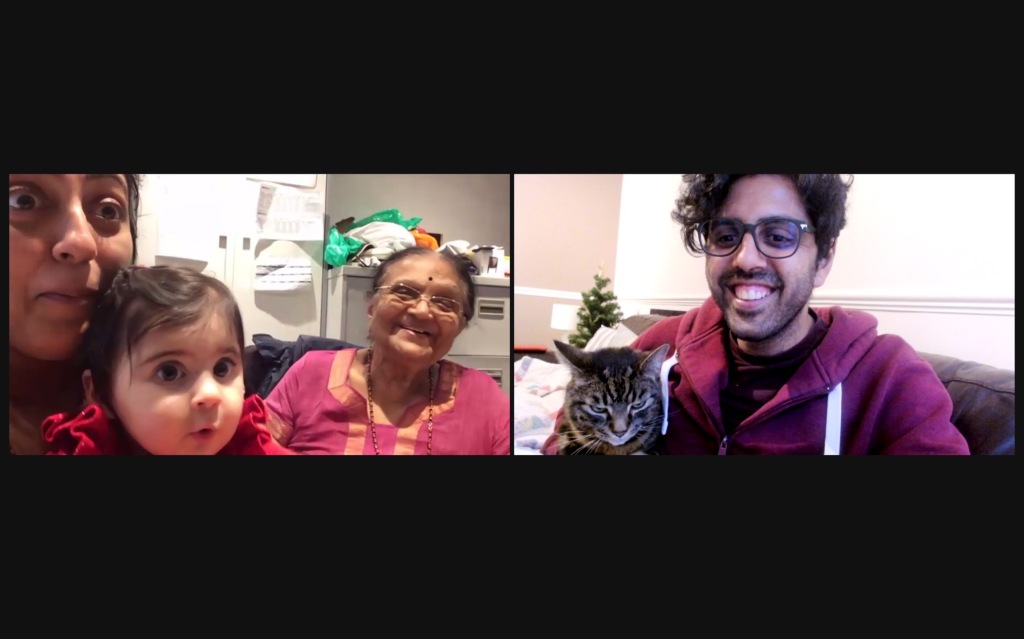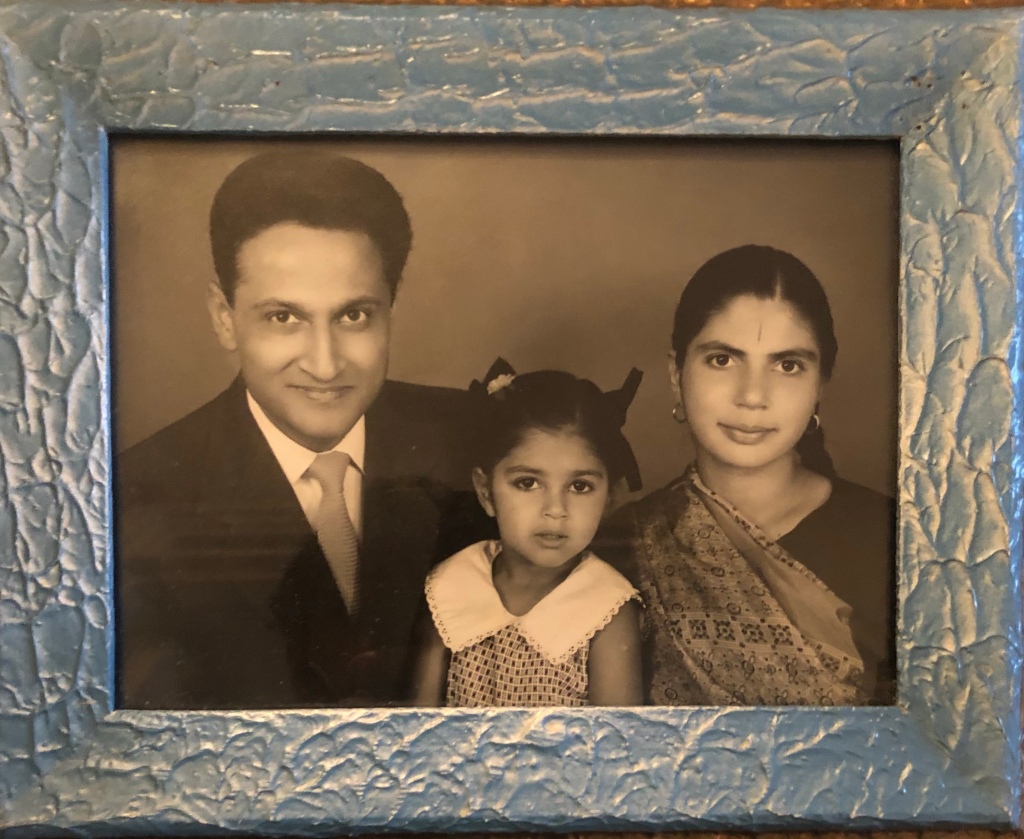OK so this is not what I promised I’d write. Not exactly.
What I had promised was an article about how to cope with reviews. The idea was that it was the article I wish I had when I started out. Now I have written that (it’s bloody long) and if you want to skip straight to it, click here. I won’t judge. But if you want a bit of preamble about what this year has meant for me, I promise it’ll enrich the reflections in the review piece and morever I’ll keep it brief.
Still reading? Ok so, here’s what happened.
Trying to writing this blog post in the context of having had three pieces of work out within the space of three months made me naturally reflect on the year that’s gone by. I started 2018 needing to take a month out. I find myself ending it in the same place, just with less ability to do it. (Do you ever really get to take proper time off? The answer to that is probably yes and that’s top of my list of things to figure out for 2019).
I’m very, very, very tired. I feel like I’ve been very, very, very tired for a very, very, very long time. At least though, with An Adventure at the Bush and Doctor Who finally meeting their audiences, I’ve put to bed projects that took up many years of my life. They both require a giant amount of research. In fact, it’s only in the last few months that I’ve been able to read a book again for pleasure instead of work. They both pushed me as an artist who wants to be responsible in the stories that he tells. They put massive strains on my personal life in ways that I regret.
When I ask myself why I let that happen, what was it that made them so important, once I ducked past the “this story is very important to tell because of x” (all of which is true), what sits at the bottom of it all is that for me both those pieces of work and Sticks and Stones, a play I wrote for the wonderful Paines Plough were all about proving that my earlier projects weren’t a fluke.
I reckon I’ve done that – all three were fairly favourably received, and I’d gladly work with everyone I made those pieces with again. There is the impulse to make art that proves something to others, whether you’re conscious of it or not. And then there is another impulse to make art that is solely for your own comfort and consumption. It’s the equivalent of cooking potato faces and spaghetti hoops for dinner. If others like it – great! – but that concern doesn’t sit at the very top of your thinking. More often than not, there’s some cross over at least.
An Adventure was 95% potato faces and spaghetti hoops. I thought of the audience in terms of how I was taking them through it and how they might approach the play, but the way it was made and the way it was presented – it’s the most “me” thing I’ve ever made. In its style and concerns yes, but also it was the play I needed right then, more than anyone. I knew on the final preview that no matter what happened after that, this play had already given me what I needed. As I’ve mentioned elsewhere, my paternal grandfather died whilst I was writing the play. He did, in fact, die a week after my telling him I was doing so for the first time. Making that play allowed me to grieve him in a way that I couldn’t have managed without it. I felt like it was a gravestone for him that the act of cremation naturally robs one of. Here lies Jayanathibhai Patel and his story – or a version of it – was told.
It won’t surprise anyone that knows me even a little bit to know that I think about my place in this country a lot. I think about the fact that once all my grandparents are gone, I have no real connection to anywhere else. Both culturally and legally. In a world that’s increasingly pulling up the drawbridges, this is where I am, whether I like it or not, with this face, in this country. My grandparents did a wonderful job of trying to make Britain a place that might work for me, but I never quite felt that connection I was aching for. I asked myself: How can I, in turn, make this a less lonely island? An Adventure was also that for me.
In that and Who, I worked with two predominantly South Asian casts this year and whilst I kind of wish I could say it didn’t mean much to me, it really did. I had conversations I’ve been wanting to have since I was fifteen. I felt both lighter and more driven. Sitting on a lunch table in the South of Spain, with an actor who’s been in the game for decades, a couple who were around my age, and one that had just graduated from drama school, I finally felt like this was an industry where I not only belonged but could make work that was important to me and enjoyable for others for a long, long time to come. To be, alongside the great Malorie Blackman, the first writers of colour on Doctor Who is a horrible honour, but I’m sure glad it was for the sake of that story.
Doctor Who also marked the occasion of my moving from being a local storyteller (theatre and domestic dramas which feels manageable) to being a global storyteller which is one hell of an eye-opener, particular if it’s a beloved show that you’ve made that move on. Your Who ep could be someone’s favourite ever and it could be the one that destroys someone else’s love of the show. It could go down horribly here and be a triumph in the States. There is absolutely no real emotional logic you can arm yourself with to make that less weird or easier to take. It is ridiculous but I’ve learned a lot and (mostly) loved it.
All in all then, it’s a banner year?
Sort of. Because if 2018 marks anything else, it’s also – being absolutely honest – the closest I’ve come to wanting to end my life in four years. I don’t say that to try and elicit a shock or sympathy and I don’t want to linger on it for too long. I took the steps I needed and I’m in an alright place now, but I want to drive home the point that there isn’t necessarily a correlation between success and a sustained peace. I’m sure a part of me thought that was the case when I was a younger man, but the final thing 2018 has taught me is that this is categorically not true.
So I look forward to a 2019 where I can embrace my limitations in some parts of my life, take the limiters off in others, keep pushing for excellence but to also find a joy in being a beginner again. Maybe I’ll learn to bake.
You guys are all so into baking right now. Is it cause of the show? Are the baking and the judging inexorably linked? Oh! Speaking of…
—————
APPROACHING CRITIQUE: A BRIEF GUIDE FOR THE PANICKED AND SOON TO BE PUBLICLY JUDGED
Getting critically evaluated, be it by Lyn Gardner or your twelve-year old cousin is fucking nauseating. Even if the review is good, you’ll probably feel more relieved than joyous. Happy that you didn’t throw up on your shoes rather than suddenly assuming you’re a God. And every time I think “I’m used to it. I won’t care.” Every time I’m wrong. I suppose it’s good in the sense that if you find yourself not caring at all then that’s probably a bad sign. I want to care til the end of my days because to me it means that I’ve invested in it and that I’ve left a bit of myself behind in the work. But how is that possible? In a world where even the most addictive substances create a tolerance, how is there no inoculation to this horrible effect?
My theory as to why you keep caring (which, to repeat, I think is healthy) and why it always stings a bit is that there is so little time to steel yourself for it even if you want to. Most new productions are being worked on right until press night and you’ve probably spent months before that trying to be open to changes and improvements and being a good collaborator. In order to do that, you need to be quite vulnerable and open as an artist, willing to accept critique and work on it which is tough but made easier by knowing you’re making the play with people who want it to be good and who (hopefully!) like you as a person. The gap between final preview and press night is not enough time to disengage that mode of being and close yourself up. By the time people come to review the work – people who don’t have that investment in you or the play – you’re still in quite a vulnerable place.
By the by, if you don’t know anything about me and are wondering what’s informing what I’m writing here: I’ve had four or so full-length theatre pieces reviewed and the same again for telly, so whilst I’m not deep into my career, I’ve had enough experience to throw out some pieces of advice that I wish I’d known before I got started. I’ve not had anything out and out panned and I’ve not had a runaway critical smash either so I hope that most of what I’m writing speaks to the middle range of responses which will be most artists’ experience.
We’ll do this in three parts. The first will be about approaching reviews when the play (or other public piece of art) is out in the world. The second will be how to consider the response after the fact. The third will be about actions and techniques to try when you’re a few months post show and in that blissful in-between stage of making work that won’t be out in the world for a while. My focus will mainly be on dealing with critics but will encompass some aspects of audience response too.
—————
WHAT TO DO WHEN IT’S ON
These are the main approaches that I’ve seen other people try and those that I’ve tried myself. You won’t find what’s best for you until you give a few of them a go. Also, some techniques work better for different projects.
It’s also worth noting that each carries a different load of stress. Nothing you do will make the experience *entirely* stress free or less nauseating I’m afraid, that’s just part of the deal of putting your stuff out there to be publicly judged, but you have some say in the *type* of stress you have which I suppose is some comfort.
Anyway, here’s what you can do:
1) Don’t Read The Reviews
2) Read Them, Don’t Engage
3) Read Them, Engage
Let’s dig a little into each of these…
DON’T READ THE REVIEWS
This is something I see writers do once they’re a few plays into their career (using the term ‘career’ loosely here). They might look at them after the fact, but the aim is to not go anywhere near them whilst the play is running. For a writer just starting out, I think it’s pretty impossible to bring yourself to not look at reviews, hoping as you are for critical validation (who doesn’t want to read a good review? And they’ll be good because you are, obviously, a genius. Or at least so you think. Sometimes.)
When I started out, I found this approach a bit high-minded. It felt so dismissive – “I don’t care what they say. I know it’s great.” By the time An Adventure came around *totally* got it. I was so sick with worry, felt so fragile and that play was so close to my heart that I couldn’t bear to sit and take what might be a mauling. So I tried very hard to not read the reviews. And you know what? I managed it and felt great. For a bit.
Because the big problem with trying not to read the reviews is that they will probably, in some way, leak out to you. With An Adventure, this happened in what feels like now quite a hilarious fashion. I had actively told everyone that I wasn’t reading the reviews to pre-empt them showing them to me. So I was sitting on the wall of the terrace outside the Bush, blissfully unaware, feeling pretty good about life. The press night the evening before had gone well – for me it wasn’t quite as good as the preview before it, but well enough despite some Prominent Director’s phone going off in the quietest scene. Just then my phone went off and it was Madani. We had a friendly opening exchange, just shooting the breeze and then he says “so listen, here’s the rundown” and I realised I had told everyone I wasn’t reading reviews *except* for the director. Whoops. Before I could stop him, he’d given me the summary: “They’re all good. But there’s an outlier.” For fucks sake. No bliss for me, ever again, just the gnawing question: “Which one, which one was it?”
Social media is another way you’re going to hear about reviews. You might post telling people not to tell you, but there’ll be a proud/combative relative or old school friend tagging you in a post saying how the reviewer really gets it/should burn in hell. Sometimes the actors will leak opinions from reviews to you. There might be a summary floating around the office of the theatre the play is in.
Basically, this approach is probably the best thing for your mind, but it’s also really, really hard to maintain, especially if you’ve got a long run and still have some plugging to do for the show. If that’s you – there’s an app called Buffer that lets you set up social media content ahead of time and not see the replies or have to go on the platform itself. Invaluable. Otherwise, get off social media and make sure you tell absolutely everyone and their mum that you don’t want to hear anything about the show. Get the hell away for a bit if you can. This isn’t an approach that I think works for me long-term because I find it hard to cut myself off from the world. I like to stay involved in the show, I like to be able to talk to the actors as much as I can, I like to hang around the theatre, I like to talk to audiences after, I like to suffer and celebrate communually so I’ll never be able to dodge the feedback. But if you can do it, you’re an absolute hero and have my respect.
READ THEM, DON’T ENGAGE
This is my default (and mostly where I ended up with An Adventure after my attempt to dodge reviews failed). Partly it’s out of curio-vanity, partly it’s because I don’t want to hear it from anyone else and partly because I want to be able to respond to questions or concerns within the company with the full knowledge of what they might have seen. It’s hard to be an effective cheerleader for the team when you don’t know where they are in the league.
A way to do this that’s kind to yourself is to not try and seek them out as they come in. Instead, go do something completely non-work related the day after press and then set aside an hour or two by yourself in a quiet place and Google away.
If the thought of that makes you queasy, find a partner or a good friend, and ask if they’ll look at the reviews and give you a summary. At least that way you get to maintain some distance.
Try to resist the urge to dismiss responses out of hand, even if you think they’re unfair. The horrible thing about an unfair critical opinion is that the critic won’t be the only one to have it. That review will speak for at least one other person. So if you’re interested in understanding the range of responses, you’ve got to face it.
The benefits of this approach is that you get to know and move on. It provides some degree of that looked-for inoculation. Once you know that someone has had that opinion, it makes the next time you encounter it easier. Let me tell you, this is particularly useful with something like Doctor Who. The consolidated viewing figure for my episode was eight million people in the UK. That, like the vastness of the universe, is a fucking terrifying thing to consider when lying in your bed late at night. However, that’s not eight million opinions, that’s probably about four or five generalised responses. Knowing “Ok so broadly people love it because of X though some folks really hate Y” made it easier for me to just get on with my life.
With plays, once you’ve taken in the reactions, more often than not things get brighter because there’s so much to enjoy about your work being on; the way the actors’ performances deepen, the way the scenes get tighter, the morbid thrill of seeing how different audiences respond, the utter weirdness that sets into a cast’s inter-personal relations when they hit the four week mark.
READ THEM, ENGAGE
Red Alert. This is the most fraught approach. It takes time, it takes energy, it takes tonnes emotional fuel. I’ve only really done this once with a theatre critic who’d reviewed my first play and given away a massive plot point and I wanted them to adjust the review to not do that. Unless they’re massively misrepresenting your play to a potentially broad audience, I think there’s little to be gained from engaging with critics, especially if it’s in response to a negative review.
Having said that, audiences can be different, and I don’t think engaging with them is bad per se. I liked doing a tweet-a-long for Doctor Who that exposed my process and I made a point of doing it with Murdered By My Father because it felt important to talk to the young demographic that we were targeting with researched-backed knowledge and clarity about the quite harrowing piece they’d put themselves through and how it manifests in the real world. Talking to people about An Adventure and what it had meant to them made all the work I put into it worthwhile. Even playing whack-a-mole with trolls on social media has its charms (as long as you don’t let them burrow too deep into your head).
If you’re going to respond to/engage with either critics or audience members, be sure to ask yourself what master it is in yourself that you’re serving. If it’s ego, be wary, if it’s curiosity careful to not mine too deep or you might end up in self-loathing, if it’s anger or hurt, take a step back and breath before you dive in. The world of the creative industries is small. If you have to piss someone off, make sure you’re super clear about why you’re doing it. People can be arseholes. Categorising the arsehole helps diminish their power and it useful when explaining their arseholery to others (ok, this image needs work.)
Some other tips: Learn to take a compliment. Even if it’s just “thank you, that’s very kind.” Resist the urge to tell the person who’s told you they like what you’ve made a list of the things that are wrong with it. They probably don’t care and it’s only really you who needs to reflect on that. If you’re a leading creative on the project, get in the habit of spreading praise amongst the team (Please remember your goddamn designers, lads) and reasonably absorbing blame rather than reflecting it. Even if it doesn’t seem fair, it’ll do you well in the long run.
—————
THE REVIEWS ARE OUT. HOW TO COPE WHEN…
THEY LOVED IT
Wonderful! Thank Santa for that. Enjoy the crown of daisies. Be pleased for yourself and your collaborators. Let a bit of yourself feel vindicated. Put it on your website. File it away for a rainy day/an Arts Council application. Line up your most audacious project that you’ve squirrelled away. Ring your Dad and tell them you were right to ignore them.
But don’t believe the hype. I know you want to. But you can’t. Even when it’s earned, you can’t get hooked on validation because it’s dangerous for your sense of self but also your ability to just do your job. It’s the same when actors get laughs in a play – it’s such a clear and immediate response, that to find you don’t get that response another day is devastating and can really throw you off course. You grasp for it to the detriment of the rest of what you’re doing and you can’t let it do that. Eyes forward, focus on the work and moments to come.
THEY HATED IT
Fuck those guys! What do they know? Well…they know they didn’t like what you’ve spent years slaving over and I’m here to tell you friends that it sucks and not only that but it will always suck.
Worst of all, your friends probably know. And you know they know. And they know you know that they know. But nobody wants to talk about it. If you feel they’re itching to be supportive, maybe bring up – vaguely – the spectre of a couple of bad reviews and watch as the floodgates open and they tell you how it doesn’t matter, and you’ve made what you wanted to make etc etc. Some of it will be true. A lot of it won’t. But it’ll still be nice and you’ve earned a bit of nice.
The aforementioned “outlier” than Madani told me about turned out to be probably the worst review I’ve ever had. That it was from The Guardian and written by someone with a not dissimilar background to me made it doubly hard to take. Never mind that it was otherwise across the board positively well received, humans have a strong negativity bias and it magnetises your attention on responses that push firmly against your hopes.
You’ll feel miserable. You’ll draft witty, cutting responses to the reviewer. You’ll dig into their biography. You’ll look at their other reviews and that’ll either validate you or horrify you (“They gave four stars to what?”). You will basically be looking for a way to dismiss the opinion. Sometimes that’ll be valid. Often it won’t. That’s why it’s hard.
Especially since a bad review can be an absolute body blow. That Guardian review basically put me to bed for three days. A friend of mine who otherwise had a wildly successful and much loved show had exactly the same feeling and response to their one bad review. They’re a smart and rational and wonderful person. Doesn’t matter. You can’t really push the feeling away in the first instance, you just have to sort of go through it. Let yourself feel really shitty. You’re allowed to feel shitty. You worked hard and it mattered to you.
When you pick yourself up, remind yourself how you felt about the show before it got reviewed. Outside of all the framing you tell yourself of certain things not being right or needing time to settle did you, fundamentally, create the piece you set out to make. If the answer is no, you can self-evaluate and consider why that happened and how to avoid it next time. If the answer is yes then for the love of God, embrace that. I’m so bad at this but trying to get better and An Adventure was one of the first things that let me do that. I adored that play. I adored that company. I had made pretty much exactly what I wanted to put out into the world and I felt so lucky to have had that opportunity. Wallowing for a bit is fine but I would be an idiot to dismiss the joy a project like that gave me because of some dissenting voices. If it’s still running, keep your focus on finding the audience who need that play, for whom it means more than anything. If you’ve made your work with care, they will be out there.
Eventually, with time, you make your peace with naysayers objections and when you do it helps to learn this phrase by heart: “I guess it just wasn’t for them.”
THEY SHRUGGED AT IT
Honestly, I think this is the trickiest one to deal with and it’s hard to give advice for. We hope for our work to elicit a passionate response, one way or another, and someone going “yeah, it was fine” can be incredibly disheartening in a way that is disproportionate to what is a fairly positive reaction. You can’t get fired up from the thrill nor can you galvanise each other to fight back against a mauling.
The careers of even the greatest writers you adore will be pocked with Shruggy work. It might be the audience wasn’t up for that kind of work in the time it was made, it might just be it’s a fair effort that didn’t quite find its fullest expression, it might have suffered in contrast to another similar show. For whatever reason, there’s no shame in this, even if it feels disappointing in the moment.
I find the best way to at this kind of response is as a bit of an emotional score-draw. “Thank God I don’t have to get too wrapped up in a response!” Both bad and good reviews can be addictive (and I screenshot segments from both). Take the calm that only comes from “They liked it! They mildly liked it!!”
—————
IT’S OVER. NOW WHAT?
Finally, beyond press night and the run of the play, here are a few things to consider trying in order to make myself feel more zen about reviews and life as an artist.
UNDERSTAND WHAT YOU’VE MADE
With a bit of time and space away from the project, I think it’s useful to sit down and try and grapple with what you’ve done. That might be, finally, looking at reviews if you haven’t.
Consider the basis of the critiques you’ve received. Turn them over in your mind, ask yourself whether you honestly agree with it or not. If so, what might you keep an eye on next time? Ask if the project did what you hoped it might do. Did it surprise you in ways you didn’t see coming? When my first play, True Brits, finished its run at the Edinburgh Fringe, I discovered an unexpected feeling in that one of my proudest achievements with that play was for it to have a brown man on a theatre poster at the Edinburgh Fringe, a fringe where the only other brown man on a theatre poster was a browned-up Italian man, starring in a musical about Buddha. In that context, that poster felt mighty to me and I’ve been obsessed with my show posters ever since.
Otherwise, this part usually involves trying to get a grasp of how the work was received by the people in the industry (I’m so sorry for using this word) whose opinions matter to me, considering my next steps and if I need to change my process or my priorities.
For example, if the show was a success, I think about what projects I might like to work with that team again on if I can. What might be the stories that could fire us up? Can I put it to the front of the queue so it can in the works before that actor disappears into the stratosphere?
If you’ve made something absolutely heinous which you think was a disaster in every way and you hate everyone involved, perhaps you need to dig back into short pieces, applying for scratch nights, search for art that you think will reenergise you, seek out new collaborators. On that note…
CONSIDER WHAT YOU’LL MAKE NEXT
If you’re anything like me, you’ll get a bit of a creative wanderlust in the aftermath of a project. “I should make a musical next!” “I should make an epic!” “I should make an easily tourable intimate two-hander that in some tangential but beautifully metaphorical way refers to Something Big In Science.” Some of this energy comes from other things you’ve seen but often some of that energy can also come from the reviews and responses and that can easily lead you astray. A touch of “I’ll show ‘em!” is useful for an artist, if not just to get you going in the morning, but you can’t let it dominate the big artistic choices you make. Be clear about what’s driving you.
In that respect, the single most useful question I’ve found to ask myself when looking to start a new project is “what compels me?”. What’s that conversation you find yourself coming back to again and again when you’re five hours deep into a session at the pub or thinking on at three in the morning. You might, honestly, find it’s nothing. In that case, maybe don’t write for a bit. Definitely not for theatre. I find it’s a medium where it’s easy to sniff out the lack of compulsion in a writer. Try something else for a bit. For example TV – though it definitely can and should tell soulful stories driven by people invested in the tale they’re telling – sustains itself more heavily on narratively driven, episodic, high concept pieces than theatre does. This means you can be part of a wider writing team (something theatre has no real equivalent of) and it can be a place to tell stories that don’t necessarily come from the deepest place within you but still allow you to be playful, exercise your craft with flair and learn a lot.
TALK TO SOME CRITICS
You may not be in the frame of mind to do this immediately after the show is done, but I’ve found it invaluable to talk to people who review about what they look for, what the pressures are on them, what their process is, why they do it. If not just out of curiosity, it makes me consider what a tough job it is and how I’m really glad I don’t do it. Of course, you don’t have to become best mates (it’s probably quite difficult if you’re both still active and a conflict of interest to some extent) but you might find it enlightening. And hey, if you add them on Facebook you might get some decent pictures for your dartboard.
SOW THE SEEDS OF YOUR OWN DESTRUCTION
This sounds a bit counter-intuitive but what I mean is that it’s incredibly healthy both for your mind and the industry for you to put a bit of time and thought into how you can support those coming after you. Depending on your situation, it will take different focuses. For me, as A Visible Minority In The Arts (TM) I’m obsessed with thinking about how I can bring through more People Like Me, if not just to take the burden of representation off my own shoulders. I don’t want to do this job forever. I’m excited by what other people are making. I want to help if I can. Any experience you have will be gratefully received by someone with none, even if it doesn’t feel like it. So make yourself useful.
The one caveat here is that this should be on your own terms. People might be eager to hear from you but you can’t give and give all the time. Be clear about that from the start – you’re not mugging anyone off, you’re just protecting yourself in what can be an emotionally demanding job. They’ll come to understand when they get to your position.
—————
CONCLUSION (AKA THE TLDR)
Critiques are emotionally tumultous. The bad ones drag you to the floor, the middling ones make you wonder why you bother and the effusive ones run the risk of turning you into a right dickhead. There’s lots of different ways to navigate them, but they will always be a part of your life. Finding some way of embracing/negating that early will make your journey easier and if you’re really lucky, one or two will tell you something about your work you never expected and when that happens it’s luminous.
Wear none of them too heavily, hold the friends who absolutely understand what you’re doing close (what a heart-filling pleasure it was to have peers I’ve known for years see An Adventure and tell me “that felt like everything you’ve been working towards since I first met you”) and always remember that the only critic you truly need to please, to care about, the one who will be there judging your work before and after, forever and ever is you.
You made a show. It’s hard. Harder than people whipping off a casual thought can know. So be nice to yourself, yeah?


